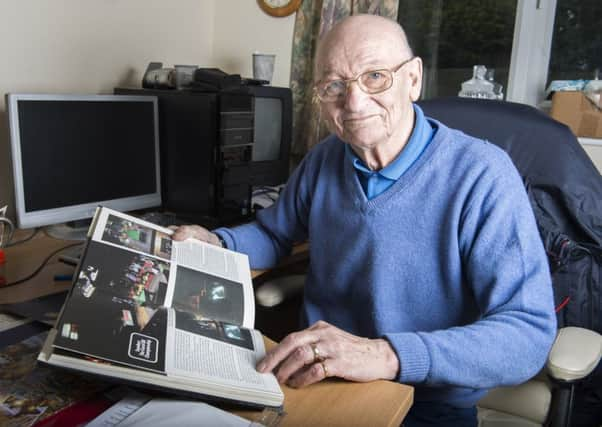Mike Watterson, snooker impresario


A former player from Chesterfield, ranked among the top 40, he was credited with taking the game out of dingy clubs and presenting it to the world on live television.
He had rented space at The Crucible in 1976 – a time when snooker had no venue, no promoter and no sponsors. The following year, the first Sheffield tournament was staged, and the World Championships have remained in the city ever since.
Advertisement
Hide AdAdvertisement
Hide AdHis entrepreneurial flair was not confined to the green baize. He was also the Derby County football club board member who in 1983 provided the £91,000 necessary to rescue the neighbouring Chesterfield FC from financial oblivion. The details of his largesse did not emerge until much later, when he joined the board at Chesterfield, eventually becoming its chairman.
He also established the World Darts Championships and the UK Indoor Bowls Championships, with TV deals for each. His friend, the three-time world darts champion, John Lowe, was among those paying tribute, noting that without his contribution, “darts would not be where it is today”.
His legacy to snooker was similarly recognised by Barry Hearn the game’s chairman, who said he had “made a huge contribution to the history of our sport”. But his relationship with the game was a bumpy one, and when the BBC mounted a 40th anniversary celebration at the Crucible in 1977, his name was not mentioned.
It was his friend, the former world champion John Pulman, who had asked him to get involved with its organisation. The BBC2 series Pot Black and the precocious talent of Alex Higgins had given the game some traction, but there was no TV deal and tournaments were staged as far apart as a basketball court in Melbourne and the British Legion hall in Birmingham.
Advertisement
Hide AdAdvertisement
Hide AdMike’s late wife, Carole, had suggested the Crucible as a venue, and he put up £17,000 from his own funds as prize money.
It was the beginning of the game’s golden era. He would go on to create the UK Championships, the International Open and the British Open, bringing on board sponsors like Jameson and Yamaha, and increasing the total prize pot to £750,000.
But with the bigger money came jealousy, he recalled two years ago.
“Some of the old players are the most ungrateful set you’ll ever meet,” he said.
Advertisement
Hide AdAdvertisement
Hide Ad“All they could think about was how much money I was earning, not what I’d done for the game.
“My staff had to be paid, I had to earn a living, my car didn’t run on fresh air. I was working 23-hour days for seven years and had put my hand in my own pocket to bail the game out for them.
“I built a tournament empire, a little circuit so they could earn money and not have to travel the country, playing exhibitions. And in return, they treated me like dirt.”
Eventually, he had a nervous breakdown.
“I curse the day I ever got involved,” he rued. “I had a good business in the motor trade, and was playing good snooker, with no pressure. If I’d stuck to that, I’d be a lot better off, in health and in temper. It changed me a lot as a person, and not for the better.”
Advertisement
Hide AdAdvertisement
Hide AdYet in other ways, the sport had been good to him. He built his own house, which he called The Crucible, and the walls of his office there were lined with souvenirs, including the score sheet of Cliff Thorburn’s historic 147 in Sheffield in 1983.
His deals outside snooker were sometimes less profitable. He had lost money on bad investments in companies, he said, but he and his second wife, Di, a chiropodist who had treated his twin sons, maintained a home in Tenerife as well as property in Sheffield.
His great-nephew, Ryan Watterson, called him a “lovely man whose influence on the snooker world cannot be overstated”.